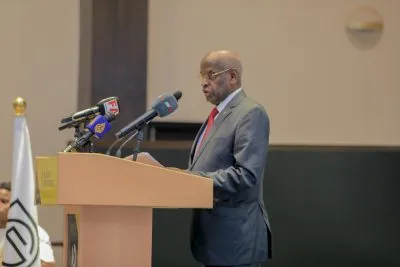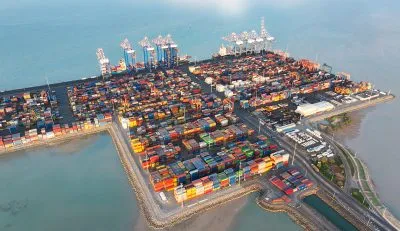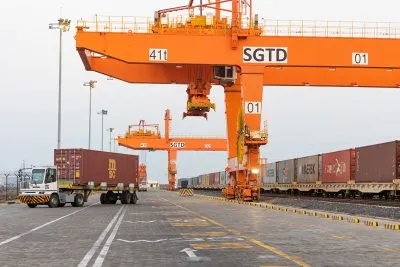Senegal’s Ministry of Tourism and Leisure held in March a series of events linked to its “Ñu Dem Ndar” campaign – which means “Let’s go to Ndar”, the Wolof name for the old town of Saint-Louis. This is part of an effort to promote the country’s rich heritage in tourism not only to outside visitors but also to the locals. The campaign was launched to help promote the diverse offering in the country, to build local capacity in the tourism sector, as well as showcasing, in this case, the beautiful natural sites and local products of the Saint-Louis region.
Within the Plan for an Emerging Senegal (PSE), which provides the framework of the policies for an emerging Senegal by 2035, the Ministry has the ambition to develop a tourism sector that is competitive, ethical and that will contribute to the country’s sustainable development.
As part of this series of events, the Ministry hosted discussions focusing on gender-related issues. The first panel looked at “The role of women in the tourism value chain” whilst the second focused on “Women and digitalisation in the tourism sector”.
One of the panellists, Mrs Marie Caroline Camara, co-manager of a hotel complex in Saint-Louis, noted that more than half of the hotel establishments operating in the city of Saint-Louis are managed by women. She added that women are also well represented in the restaurant sector, as well as associated industries such as arts and crafts. “Tourism is not only hotels and food. Arts and crafts are also important for the promotion of the tourism sector, and these are often industries where women play an important role,” she argued..
Amdy Sène, Technical Adviser at the Ministry of Tourism, reiterated this important point arguing that women occupy an important place in the field of tourism, and have always done. However, he added, there needs to be a deliberate effort to ensure they are given positions of responsibility, in line with Sustainable Development Goal 5, which calls for “the full and effective participation of women and their equal access to leadership positions at all levels of decision-making in political, economic and public life”.
Flagship programmes
Within the PSE framework, the Ministry of Tourism has been entrusted with two flagship programmes: the development of integrated tourist zones and the micro-tourism programme. More specifically, this involves the development of ecotourism projects in several sites including Saint-Louis, and the development of cultural and destination tourism around the historical sites of Saint-Louis and Gorée island, two cities steeped in history.
Ismaïla Dione, Director of the Regulation at the Ministry of Tourism, underlined the importance of embracing technology, and that digitalisation has become a necessity in the tourism sector. This is at every stage of the experience, he explained, from booking, paying, and digitising your offering to make it appealing to a world that is increasingly connected through their devices. But this also relates to simplifying all the administrative procedures.
“One of the main projects that we have is of having all our paperwork digitised. This will also speed up the processing of files and requests and provide a seamless experience.” Dione added that in the digital age, digitalisation also contributes to enhancing quality and performance.
In the same vein, the Director of the Reference Centre for Tourism Professions in Saint-Louis, El Hadji Malick Mbaye, underlined the importance and the relevance of digital technology in the tourism sector, while welcoming the steps being taken to complete the digital transition. According to Mbaye, it is important to reinforce the use of technologies within educational and training programme, especially in the field of coding and communication, to provide students with tools for economic empowerment.
The Director of Tourism Promotion, Mohamadou Manel Fall, concluded by providing encouragement to the young women students, saying they should believe that they can reach the top of their professions. He cited his own organisation, the Directorate of Tourism Promotion, where women represent almost 92% of the staff.
As to the theme of digitalisation, he announced the launch of a Hackathon planned for the end of the year to detect and reward the best digital products and innovations in the field of tourism.

Tour of Saint-Louis
The second part of the programme was more practical. It involved taking a group that included the Ministry and its various agencies, alongside students from the UGB Academy, to visit different spots on the island of Saint-Louis, from north to south.
It included stops at Regional Documentation Centre of Senegal (CRDS, formerly Ifan), a photography museum, its famous Mosque with its two minarets designed in a mix of Gothic and North African style, and the Langue de Barbarie, a thin sandy peninsula not far from the Mauritanian shoreline at the northern end of the island. Other activities included processions of horse-drawn carriages, and in the evening guests were treated to the parade of Signares and the traditional show of “False Lions” before musical entertainment on the boat Bou el Mogdad.
The third and final day of the programme was a free day to allow the delegation to visit other unmissable tourist sites such as the bird reserve, le Parc des oiseaux de Djoudj, and the Gueumbeul Reserve. This particular programme in the region of St-Louis was designed to hear first-hand from the local actors in the tourism sector and to understand their needs and concerns, in order to work together to deliver a better overall offer.
Following the positive response, Fall announced more “proximity marketing campaigns” in other regions of Senegal over the coming months.
Read more about tourism in Senegal.
Read more about Senegal’s booming economy in our Senegal Dossier.
Want to continue reading? Subscribe today.
You've read all your free articles for this month! Subscribe now to enjoy full access to our content.
Digital Monthly
£8.00 / month
Receive full unlimited access to our articles, opinions, podcasts and more.
Digital Yearly
£70.00 / year
Our best value offer - save £26 and gain access to all of our digital content for an entire year!

 Sign in with Google
Sign in with Google 



